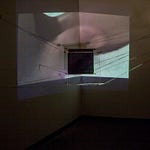One of the wonders of free speech is the possibility of knowing who or what you’re being faced with. The experience of a parrot-in-human-form becomes obvious when particular phrases are regurgitated by different people, as if the same psyche was inhabiting their body. One of the peculiar aspects of this encounter is how unique the speaker seems convinced they are. Such as in the Dunning-Kruger effect, where someone is too daft to know they are ignorant, when it comes to parroting propaganda or thinking for oneself, there is to note the presence of self-doubt or glow of confident insistence in the novelty of what is being said. To be entirely absent of awareness of how rote certain phrases are, could be a sign. I cannot say for sure, but it might be a tell…
Enter the internet, right here we are spreading information…some of which has merit and basis in reality, and others which are banal platitudes that may intend to do well but create harm. The forever internet (archive.org) is another thing, while the archiving of our milliseconds of life (Tiktok) show our fascination with knowledge to be intellectual and increasingly somatic: meaning a growing number of people want to shut this thing off…but we feel and believe deeply that we cannot live without the internet. This web of cookies stashed in robotic circuits, maintained by technicians relies on our personal engagement instead of in-person relations with each other. Struggling to find a balance, we all are in this machined competition for intelligence that often turns the web into a mirror of muddied confusion. I find myself looking for guides of how to spot disinformation and mostly relying on family and friends letting me know when I’ve been duped again.
To establish knowledge, there has to be an inclusion of seemingly opposite concepts, and a parsing out of their similarities and differences, tested against reality. Knowledge production is not terribly different than the scientific method, in that epistemological explorations will also critique the very measuring devices used in a method. Then there are the ethical and often dreaded moral dilemmas woven throughout, and it doesn’t take long until the 10000(+?s) of people claiming to know on the internet make the interconnected of us aware of the similarities and differences people from all walks of life share.
The resulting crash seems that upon which something not entirely real (an ego) might fall down from. That is, after all, much of which those with plenty would be fighting for. Which is pretty darn strange in light of my former intolerance to negative thought-forms and how dissonant those "positive only please" experiences can be. A view of life is that, and yet it is often taken as an imposition upon another. To experiment with Ibsen’s approach to understanding as Real love, it is no wonder how unpopular his knowledge was to the self-proclaimed society gurus of his time, and how little that tendency has changed over all these years.
The danger I have several times encountered I could have never before explained in my life, especially when related to practicing yoga is the guru complex which often conflates out of being a teacher and taking the responsibility either too seriously or too lightly. When a teacher or any person really becomes pedestalled it really only seems a matter of time for people to follow their lead. My Oma had always said: monkey see, monkey do. So then how on earth do humans organize functional structures free from thought leaders which can perform as mass-hypnotists? I cannot say I have the answer, but can propose one answer I noticed formed the basis of several decades of friendship (though I’m not quite that old yet). That would be the exchange of books and creations. There have been fewer better ways to get to know who someone is, or at least the lines of things they care about and vice versa than what they create and read. It’s not so much that we are what we think, but that the power of someone’s embodied knowledge also comes through their body language, which is the feeling we get upon first meeting: safe, exiting, scary, and even if we know someone more and more, and even more scarily less and less, that first feeling, the origin is within us.
Would it not be strange to stop the study of origins in knowledge production? Could it be intentional or merely an accident the pursuit of origins might uncover some kind of fuel for personal agency and in a growing population that might seem scary to people who are seeking control others. To me, this is a gross lack of faith in the human ability to learn, even if there is failure and then learning. Fear isn’t useless but the love of fully immersing oneself in engaging activity is pretty hard to surpass.
Even if I say you are already free-I damn myself. Because who am I to know where you are? Maybe you are imprisoned in your mind? In your body? Maybe you are suffering and need something? I suppose this is really simply a warning about advice and the rise of what the video below describes. I do not know about you, but if you do feel invited to pack this information in your luggage, into the bumpy ride of learning: this will require large doses of ginger.











